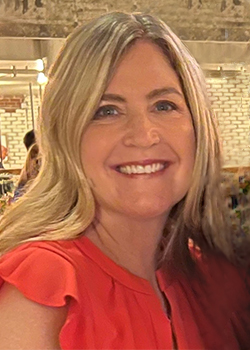Relationships are at the center of dental assisting

Ask dental assistants about the rewards of working in their chosen profession, and you might find the common answer is not what they enjoy most. Rather, it’s all about who.
Often, the best part of a dental assistant’s journey is a patient or colleague who has crossed their path in a meaningful way. Assistants at all career levels appreciate teammates who have become lifelong friends, acted as mentors, and made their workdays run smoother. Assistants also value heartfelt moments they’ve shared with patients. “I enjoy when patients allow us to be part of their life,” says Katja Krull, CDA, of Sault Ste. Marie, Michigan, who has been a dental assistant for 27 years.
In honor of Dental Assistants Recognition Week, March 3-9, 2024, we celebrate dental assistants’ contributions to creating a welcoming dental office environment for patients and staff.
‘We set our doctors up for success’
From start to finish, dental assistants have the critical task of supporting patients and making sure they have a successful appointment. When a patient enters the dental office, their dental assistant is among the first people they see. A dental assistant’s initial conversations with patients are essential to ensuring a smooth visit.
The dental assistant is responsible for documenting patients’ medications and medical history and often works hand in hand with other healthcare workers, Krull notes. She recalls a patient who was devastated to hear the dentist’s treatment recommendation to remove his teeth and put in dentures. “We were getting really concerned about his mental state,” Krull says. Because she works at Indian Health Service, the dental team was able to call for support from a counselor in their network. “It was good that we had that resource,” she says.

“We are on a journey together with our patients, especially when they come in and unburden to you whatever has been going on in their lives.”
— Katja Krull, CDA
Dental assistants also gather personal information about the patient that could be helpful for the dentist to hear — whether it’s minor, like returning from vacation, or a major life event — and then update the patient chart. Margaret Benedick, COA, of St. Louis, Missouri, says, “I give the doctor a heads-up: ‘This has just happened, the patient has lost someone in their family, so don’t ask about them.’ We set our doctors up for success.”
As the appointment progresses, dentists rely on dental assistants to keep the tone positive. “Patients’ experiences sometimes can be negative, especially if they need a root canal,” says Benedick, who has been in dental assisting for 39 years. “I say, ‘you have this awesome dentist and hygienist, and we’re going to take care of you.’”
‘We are on a journey together with our patients’
Dental assistants value building connections with patients that last long after an appointment is finished. It can be incredibly meaningful for dental assistants to work with multiple members, and even generations, of the same family.
“I’ve been lucky that I have been working for the same place for such a long time that I’ve seen patients who I’ve known since they were kids bring in their own kids,” says Krull. “Or, I’ve had patients I met as adults bring in their grandkids. Patient care can be very family-oriented.”
Together, patients and the dental team reach oral health goals in a single appointment, or across multiple appointments. For example, Krull recently had a patient eagerly undergo full-mouth restoration work before proposing to his girlfriend on Valentine’s Day. “He asked, ‘Can you get this done by the 13th?’ We said, ‘We’re going to deliver!’”
Other times, dental assistants help patients overcome negative emotions, such as anxiety or fear. Dental assistants support patients every step of the way.

“We set our doctors up for success.”
— Margaret Benedick, COA
“We are on a journey together with our patients, especially when they come in and unburden to you whatever has been going on in their lives,” Krull shares. “Or, for some reason, maybe they could not have continuous dental care, so the team is picking up the pieces and restoring their smile. We restore so much more than that — we restore their confidence.”
‘Everyone wants to feel valued’
Dental assistants know a welcoming dental office environment for patients starts with having a strong, supportive dental team, since patients are likely to pick up on any negativity in the office. “It’s so nice to feel like your co-workers are not just your co-workers, but that they’re like your work family,” Krull says.
The best dental teams stay positive, pitch in with a busy workload, and acknowledge a job well done. “We help each other out,” Krull continues. “It’s essential to feel like your ‘work family’ has your back and does simple things, like fill in for you so you can take time off, or say, ‘you’re running behind, let me do this task for you so you stay on schedule.’”
A close-knit dental team looks forward to seeing each other every day. Sometimes, colleagues become friends and socialize outside of work. Says Krull, “For us it’s like, ‘let’s all go out for pizza together,’ or ‘it’s Monday morning again, and there’s a pot of coffee ready, fabulous!’”
Another benefit of having a tight team is being around like-minded professionals who share a passion for continuing dental education. In her career, Benedick is grateful to have worked with dentists and orthodontists who have touted the importance of DANB certification. Now, she strives to pay forward her knowledge and instill confidence in her teammates, especially those who are new to dental assisting. “I’ll build them up and say, ‘you really shine at that!’” she says. “Everyone wants to feel valued.”

